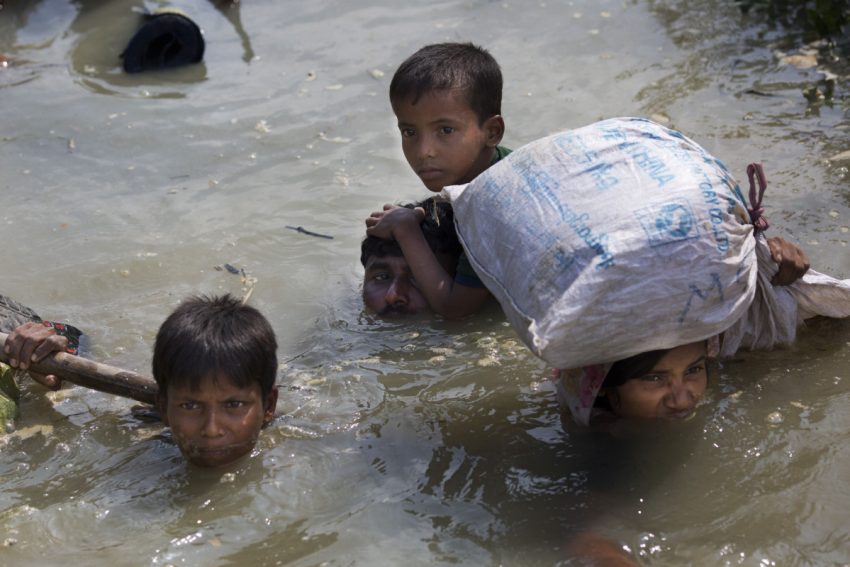
RNA - Over 429,000 Rohingya Muslims have fled to Bangladesh since Aug. 25, when Myanmar regime forces and extremist Buddhist started a new wave of crackdown that the United Nations has termed as ethnic cleansing. The recent exodus of Rohingya has brought the number of refugees from Rakhine living in Bangladesh to over 800,000.
During a visit to the sprawling Kutapalong refugee camp in southeastern Bangladesh, close to the Myanmar border, the United Nations High Commissioner for Refugees, Filippo Grandi, said Rohingyas had told him their stories.
“I was really struck by the fear that these people carry with themselves, what they have gone through and seen back in Myanmar,” he said in the camp, where refugees live under thousands of tarpaulins covering the hills and rice paddies.
“Parents killed, families divided, wounds inflicted, rapes perpetrated on women. There’s a lot of terrible violence that has occurred and it will take a long time for people to heal their wounds, longer than satisfying their basic needs,” Grandi said.
The speed and scale of the exodus from Myanmar has left hundreds of thousands living in dire conditions in a poor part of a poor country, and UN and aid agencies are scrambling to give people shelter, get them fed and prevent an outbreak of disease.
A senior UN official said on Friday that an estimated $200 million would be needed to help the refugees in Bangladesh for six months. Aid workers fear a humanitarian crisis is also unfolding in Rakhine state, though Myanmar has restricted access.
Myanmar de facto leader and noble laureate Aung San Suu Kyi has faced a barrage of international criticism over their plight, for condoning the ethnic cleansing.
Villages Burning
Meanwhile, Amnesty International has said new satellite images and videos from Myanmar’s strife-torn Rakhine state show smoke rising from Rohingya Muslim villages contradicting Aung San Suu Kyi’s claims that military operations there have ended.
The London-based group said its sources in Rakhine claim the fires – captured in images as recently as Friday afternoon – were started by members of the Myanmar security forces and extremists Buddhist mobs.
“This damning evidence from the ground and from space flies in the face of Aung Suu Kyi’s assertions to the world,” Tirana Hasan, Amnesty’s director of crisis response, said in a statement late Friday.
“According to eyewitness accounts, photographic evidence, and multiple reports, antipersonnel mines have been laid between Myanmar’s two major land crossings with Bangladesh, resulting in casualties among Rohingya refugees fleeing government attacks on their homes,” the group said.
It demanded that Myanmar immediately cease using such weapons and accede to the 1997 Mine Ban Treaty, to which 162 other nations are parties
Source: Alwaght
847/940